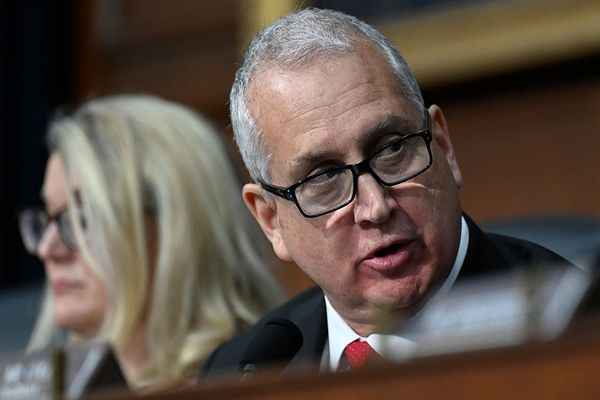
The Ezra Klein Show (The New York Times) | nytimes.com
File on Four: Ukraine: War Stories (Radio 4) | BBC Sounds
Invaded: Voicemails from Ukraine (Tortoise Media) | tortoisemedia.com
Explaining Ukraine (UkraineWorld) | SoundCloud
The Sky News Daily Podcast (Sky) | sky.com
War on Truth (Radio 4) BBC Sounds
God, the news is devastating at the moment. At least it is here. On Ezra Klein’s podcast, New Yorker staff writer Masha Gessen explained that, in Russia, the news is… OK. Same as ever. Just the usual five minute on-the-hour TV bulletin. Perhaps a mention of the “special military operation” in Ukraine, but “the actual tenor and flow of news hasn’t changed”.
“When I was flying to Moscow,” said Gessen, “in the air terminals [with] those giant [TV] displays, you could tell, without even listening, that something huge was happening in the world. It’s the opposite in Russia. The picture hasn’t changed, the tenor hasn’t changed, the timing hasn’t changed. The overall message is: nothing much is going on.”
Something definitely is going on, of course, and it’s possible (if you’re not in Russia) to feel overwhelmed by the relentless news of destruction and killing. For some, the answer is to switch off; for others, there is comfort in trying to understand. The Ezra Klein Show is one place to start. Klein, a US political journalist, has been hosting this podcast since 2015; it was co-opted by the New York Times at the start of 2021. Klein is a very good interviewer, because he’s so well-informed and thoughtful and usually the twice-weekly show covers a variety of topics, such as Covid, the climate crisis, kindness, cryptocurrencies. However, like many other political podcasts, his show has talked of nothing except Ukraine for the past four episodes.
Gessen, his last-but-one interviewee, who was born in Russia and lived there for many years, was beautifully articulate. Klein asked whether Putin believes what he says in public and Gessen used the way that teenagers argue as an illustrative example: how a teen can tell a lie and then, when you challenge them, absolutely deny it “and the longer the argument goes on, the more attached they will be to the thing they lied to you about, even though you both know that they were lying”. I’ve just started the latest episode, which features the heavyweight historian Timothy Snyder and it’s impressive too, as was the episode before the Gessen one, where Klein discussed Putin’s motivations with Fiona Hill, the co-author of a Putin biography. Be warned, though, that that one’s pretty depressing (“He’s going to double and triple down on the military side of things,” said Hill).
It’s interesting, when you search out podcasts about the war, that so many talk about Putin. All the learned information about his history and motivations seems worldly wise when you’re discussing the situation from New York or London. On the ground in Ukraine, though, clever words float into the air, like dust. On Radio 4’s heart-rending File on Four last week, we heard from several Ukrainians who were simply living their lives and woke up to bombing. One was Marie, a young woman who lives in Chernihiv. Her voice noticeably changed from her first, upbeat, phone recording to her second and third. Her breath came shallow and fast. She was in shock. More Ukrainians explaining clearly what war is like in Invaded: Voicemails from Ukraine, a daily podcast from Tortoise Media. The show returns to certain people, so we’ve joined teacher Naliia from her initial shock through her leaving her home to worrying about her family, and been with Oleksandr and the volunteers preparing for Russian attacks. Normal people in abnormal situations.
Two more Ukrainian voices, too, on Explaining Ukraine, hosted by Volodymyr Yermolenko, an analytics director at Internews Ukraine, and Tetyana Ogarkova, from the Ukraine Crisis Media Centre. Explaining Ukraine is part of the Ukraine World group, which tries to counter disinformation. Once, this was a podcast explaining Ukraine and its culture; now it’s a daily war report. Yermolenko, who is in Kyiv, sounds tired: “The key news is that Russians are shelling with missiles, Kyiv… It’s frightening, you wake up in the morning and you have the increased heartbeat.” A tough listen, both for tonal and factual reasons, but it reports what’s happening as it happens.

A couple of other programmes to recommend (and don’t forget the BBC’s Ukrainecast, presented by Victoria Derbyshire and Gabriel Gatehouse, which I’ve mentioned in a previous column). Sky News Daily has pivoted to the war and is doing an excellent job. Occasionally, it offers not much more than a behind-the-scenes look at a TV news show, which can be a little frustrating: the descriptions of how Sky TV landed its interview with Volodymyr Zelenskiy made me wonder why we couldn’t hear the audio of the interview straight afterwards. But overall, it’s clever and revealing. In one of the most recent episodes, Jack Taylor, from its “data and forensics unit”, explained the difficulties with online information: someone in Mariupol could film a nearby building being blown up, but the very fact of the explosion means that they are less likely to post it, because the explosion means there’s no power.
Speaking of power, and of online reporting, Marianna Spring, the Beeb’s exemplary disinformation correspondent, has just started a podcast that looks at the role of fake news in the war. In War on Truth, she’s been talking to TikTokers who’ve been posting videos of what’s happening and have been flamed by what appear to be Russian-based bots for doing so.
Anyway, despite all the clever explanations, it’s the shows that feature real-life Ukrainians living through this real-life hell that stick with you. On Explaining Ukraine, Yermolenko and Ogarkova ask for a no-fly zone on every show. I certainly don’t know the answer to this war, and I know that Ukraine is being helped behind the scenes, but when victims tell you what they need, perhaps we should listen. Otherwise, we’re just standing around a kid being beaten up by a bully, filming it on our phones and chatting.







